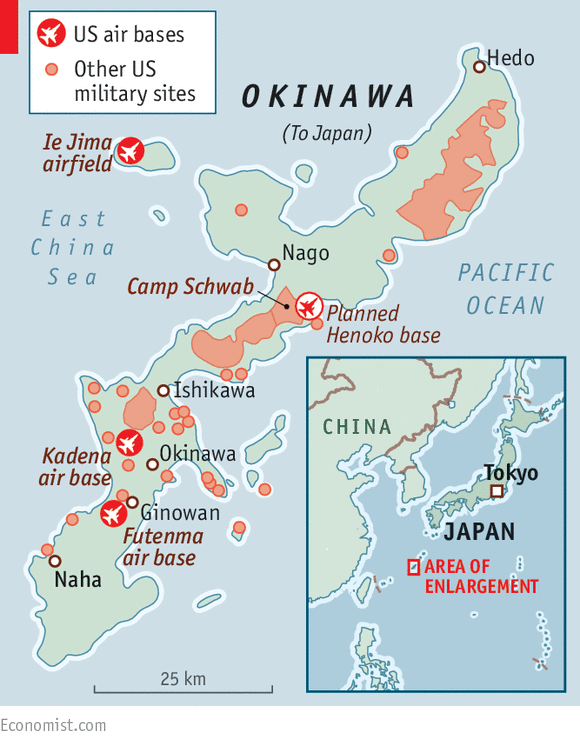
We Need Evacuation Plans!
However, not all blame lies at the door of the municipalities, for the Japan-U.S. Status of Forces Agreement (SOFA) stipulates that the U.S. military holds “exclusive management rights” over everything that goes on at its bases, making it virtually impossible for the Japanese government to have a say in its business. Also, there’s no way whatsoever for the municipalities to know what kinds of weapons and ammunition are on site or whether or not they are radioactive.
"Despite repeated demands for disclosure, they will just come back with the word 'confidential,' so there's no way for us to take concrete steps," rightfully complains one official in Chatan, Okinawa.
Indeed, until a U.S. helicopter crashed into Okinawa International University, for example, residents didn't know radioactive strontium was used in U.S. choppers. Even worse, this fact was exposed a month after the crash. In this kind of environment, how can the municipalities prepare for possible accidents?
There have been too many similar cases to enumerate all of them on this page. For example, people in Kumejima hadn’t been clued in to the military’s use of radiological weapons until after Marine Corps fighter jets accidentally dropped depleted uranium (DU) bombs into the sea during military exercises at the Torishima firing range. And the Chibana Ammunition Depot gas leak that occurred before Okinawa’s reversion to Japan was exposed not by the military, but by the U.S. press. All this shows the U.S military’s incorrigible disregard for the safety of people in their host cities and towns.
The Department of Defense, the U.S. military's virtual landlord in Japan, should be obligated to at least provide host towns and cities with critical information for evacuation planning. At the same time, the U.S. military shouldn’t be allowed to hide behind the curtain when it is the one that needs to come clean.
I’d say the “exclusive management rights” proviso is the root of all evil here. This kind of concept is not accepted anywhere else in the world. Humiliatingly enough, this, in effect, reduces Japan to the status of a vassal state.
In Germany, for instance, the U.S. must follow Germany’s laws and regulations. Should it pollute Germany's environment, it is the U.S. not Germany that must clean up after itself. In Italy, military flight times are dictated by the government. So, it is inconceivable that these host countries know nothing about what’s going on at the bases.
Unexpected things do happen, as evidenced by the Great East Japan earthquake. It is the duty of relevant municipalities to batten down the hatches for any potential eventuality, and the U.S. and Japanese governments have the duty to help with those preparations. But the best solution is to revamp the SOFA, the seed of all secrecy in the system.
